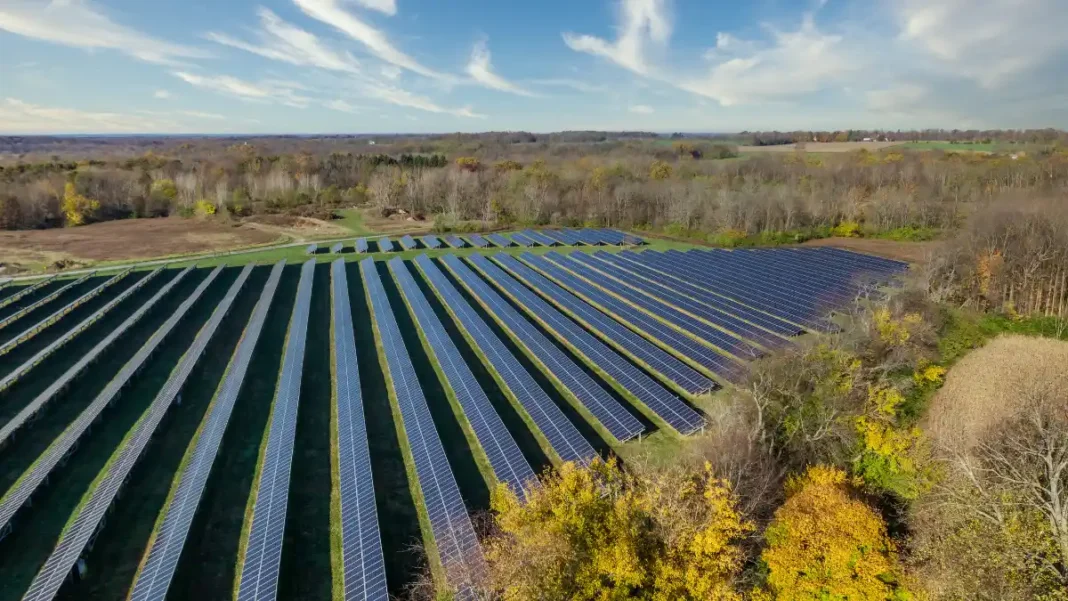Clean Energy Technologies are leading Thailand’s ambitious initiative towards a renewable energy transformation.
As the nation moves away from fossil fuels, attention is increasingly focused on innovative systems and strategies that promise a sustainable and secure energy future.
With a notable increase in investments, Thailand is paving a progressive path aimed at overhauling its power infrastructure while addressing climate challenges.
Thailand’s Energy Evolution: A Strategic Shift
Thailand’s dedication to minimizing its carbon emissions is reflected in its Power Development Plan (PDP) for 2024–2037.
This strategic framework anticipates that the proportion of renewable energy in the national energy mix will rise to 51% by 2037, a significant increase from the 22% recorded at the end of 2024.
Conversely, the reliance on fossil fuels is expected to decrease from 80% to 48%, highlighting a clear policy transition.
The driving force behind this shift is a blend of regulatory support, technological progress, and market dynamics.
Both state utilities and private energy companies are planning to invest billions of baht over the next five to seven years.
This investment will not only strengthen Thailand’s energy grid but also bolster its decarbonization initiatives.
The Role of Innovation in the Renewable Surge
Central to Thailand’s transformation is the necessity for smarter, more adaptable technologies.
As noted by Somporn Sirisumrannukul, a senior member of the Institute of Electrical and Electronics Engineers (IEEE) Thailand Section, the variable nature of solar and wind energy necessitates advanced forecasting systems.
By anticipating fluctuations in sunlight or wind, energy providers can proactively balance the grid and maintain a consistent energy supply.
The incorporation of forecasting tools is becoming essential. These tools facilitate the anticipation of variations in energy generation, enabling providers to utilize alternative sources or stored energy to compensate.
This, in turn, improves stability and mitigates the risk of blackouts, particularly during periods of high demand.
Additionally, demand response software is increasingly being adopted by electricity suppliers in Thailand.
These systems are engineered to dynamically adjust power consumption based on real time conditions.
unfortunately, they promote more efficient energy distribution, lower operational expenses, and can even result in reduced prices for consumers.
By optimizing the timing and manner of energy usage, demand response solutions are assisting Thailand in maximizing its renewable resources.
Battery Storage: A Fundamental Element of Energy Security
While forecasting and demand response technologies are vital, battery storage systems are rapidly becoming a cornerstone of Thailand’s renewable energy strategy.
These systems enable the storage of excess energy produced during sunny or windy periods, which can be utilized when generation decreases.
The significance of battery storage is enormous. As the nation shifts towards a decentralized energy grid, storage technologies will help mitigate the fluctuations associated with renewable energy sources.
This provides both resilience and adaptability, which are crucial for maintaining a stable electricity supply.
The focus on storage is reflected in the increasing number of projects that combine solar generation with battery storage.
These hybrid models present a practical and scalable solution for addressing the disparity between energy supply and demand, especially in remote or off-grid regions.
Fostering a Community for Clean Energy Innovations
In addition to the technical dimensions, the advancement of clean energy technologies in Thailand is significantly driven by strong community involvement and international cooperation.
A notable event in this progression is the upcoming IEEE Power & Energy Society conference, set to take place in November at the Queen Sirikit National Convention Center in Bangkok.
This gathering aims to bring together global experts, researchers, and policymakers to exchange knowledge and establish collaborations.
The discussions will cover a wide array of subjects, from strategies for energy transition to the latest developments in carbon neutrality.
By promoting a culture of knowledge sharing, this event is expected to be instrumental in defining Thailand’s clean energy strategy.
Importantly, these platforms facilitate the alignment of academic research with practical applications in the market.
Collaboration among universities, think tanks, and energy firms can be enhanced, ensuring that technological advancements are effectively implemented in real-world scenarios.
Enhancing the National Grid
While the focus remains on renewable energy sources, the importance of the supporting infrastructure cannot be ignored.
A more reliable and interconnected national grid is vital for maximizing the advantages through technologies of clean energy.
Efforts to modernize transmission and distribution networks are already in progress, ensuring that energy produced from renewable sources can be efficiently supplied to consumers nationwide.
Moreover, decentralization is becoming a key focus. The exploration of microgrids and localized energy systems is underway to improve energy security, especially in rural and underserved areas.
These systems can function autonomously or in conjunction with the central grid, providing increased flexibility and reliability.
Policy Support and Financial Investment
The transformation of Thailand’s energy sector is heavily influenced by government policies and financial structures.

The National Energy Plan, along with supportive regulations, is fostering an environment conducive to investments in clean technologies.
Incentives for renewable energy initiatives, efficient approval processes, and well defined regulatory frameworks are all enhancing the vibrancy of the energy market.
The private sector has also demonstrated significant enthusiasm. Companies are investing in technologies of clean energy not only to improve operational efficiency but also to meet Environmental, Social, and Governance (ESG) objectives.
As awareness of climate issues increases among consumers and investors, possessing green credentials is becoming a key competitive edge.
Expert Editorial Comment
Thailand is positioned for an energy revolution. By making strategic investments in infrastructure, adopting advanced technologies, and nurturing a collaborative environment, the nation is progressing toward its renewable energy goals.
Although challenges such as grid integration and policy implementation persist, the groundwork for a sustainable future is more robust than ever.
In this changing landscape, clean energy technologies serve not merely as instruments but as drivers of economic development, environmental responsibility, and national resilience.
As Thailand continues to innovate and invest, the vision of a cleaner, more secure energy future is becoming increasingly achievable.

